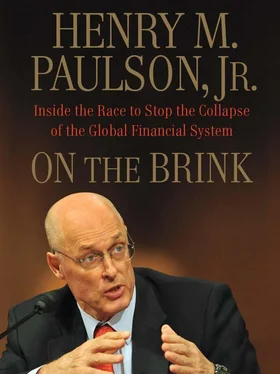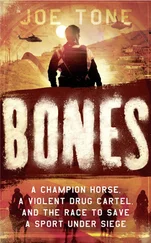My dad wanted to be a farmer. He loved the outdoors, the land, and the wildlife, birds in particular. I inherited from him my interest in birds of prey. After graduating from Principia College in southern Illinois, Dad persuaded my grandfather to buy land in Stuart, Florida, and started a ranch with Brahma bulls down there just after World War II. My mom hated it. I was born in 1946 in Palm Beach while my parents were living on that ranch.
That year, during the severe postwar economic downturn, my grandfather’s company fell on hard times. My father had to sell the ranch for next to nothing and return to Illinois to help his father manage a dying business. We lived in a small garage apartment in Winnetka for a few years before moving to a 75-acre farm in Barrington, a small town of some 3,500 people 40 or so miles from downtown Chicago. It was about as far as you could get from the city back then and still commute comfortably.
We always had horses, hogs, cows, sheep, and chickens, not to mention my pet raccoon and crow. I spent a lot of time doing chores—milking cows, mucking out stalls, baling hay. We churned cream for butter, drank milk from our cows. We put up food for the winter, butchering the chickens, hogs, and sheep. Mom froze vegetables from the garden.
My father had a fierce work ethic; he was industrious and thrifty. From the time I was very young, I understood that you didn’t lie around in bed in the morning. You didn’t stay in the shower for more than a couple of minutes. You got up; you worked; you were useful.
At one point, when I was nine or ten years old and the family was barely scraping by, Dad decided he’d cut our hair himself and mail-ordered a pair of clippers. He did such a bad job that he left bare patches on our scalps, then he filled in the bald spots with pencil and said no one would notice. It took several haircuts until Dad became proficient. These traumatized my brother, but I was largely indifferent to my physical appearance and to what I wore—a lack of fashion sense that I have not outgrown.
Real happiness, my father liked to say, came not from anything that was given to you, or that was easy to get. It came from striving to accomplish things and then accomplishing them. You had to do things right. If you left grass tufts sticking up when you mowed the lawn, you had to do it again.
But my father wasn’t all work and no play. He helped set up an extensive network of riding trails in the village, convincing farmers in the neighborhood to put up gates on their fields to let us go through on our horses. My parents took up skiing when they thought that my brother and sister and I might have an interest in it. I lived for the outdoors—and especially for fishing. My parents indulged this passion by taking us on wilderness canoe trips with difficult portages through Canada’s Quetico Provincial Park, just above Ely, Minnesota. (Not that this meant extravagance: my father once told me proudly that we spent less on our annual two-week trip than it would have cost to live at home.) Wendy joined us the summer before we were married, and later we brought our kids along on the canoe trips with Mom and Dad.
In 1958, just before I started seventh grade, my parents decided we were land rich but cash poor, so they sold the farm and moved us to a smaller place a little farther out of town. On our 15 acres, we had a barn, seven horses, and a big vegetable garden, but no more livestock. We had to buy our chickens and beef and milk in the supermarket like everyone else, though we still ate the vegetables that we grew.
I went to local town schools and then Barrington High. As a boy, I was very goal oriented. It’s what Wendy calls my gold-star mentality. I no sooner became a Boy Scout than I made up my mind to become an Eagle Scout, which I did, at 14. I switched my focus to school and excelled in football, wrestling, and my studies.
The idea of heading east to college came from my mom, who wanted me to go to Amherst. Its students wore coats and ties back then. Dartmouth College seemed uncouth to her, but I was recruited to play football there.
I loved Dartmouth. I made good friends on and off the football team—and my professors challenged me. I majored in English because I loved literature, and though I didn’t like economics, I took several courses in it, as well as lots of math and some physics.
I did well in football, despite my size: I was a six-foot-two-inch, 198-pound offensive lineman, often outweighed by 50 or more pounds by opposing tackles. Our coach, Bob Blackman, was a superb teacher who trained many other coaches. We won the Lambert trophy as the top Division 1-A team in the East in 1965 not because we had the finest athletes but because we were the best coached. As a senior I won the award for outstanding lineman in New England.
During two of the summers I was at Dartmouth, I worked at a Christian Science camp in Buena Vista, Colorado, called Adventure Unlimited. We climbed in the mountains, took float trips down the Arkansas River, and rode horses—I couldn’t have been happier. It was also terrific preparation for the future. The first year I was a camp counselor and the next year a unit leader, responsible for the oldest boys, up to 17 and 18 years old, as well as counselors who were older than I. It was a chance to manage and to lead.
Christian Science has always been a big influence on me. It is a religion based on a loving God, not a fearsome one. An authentic confidence comes out of this. You understand that you have great capacity to accomplish good that comes from God. Humility is at the core of the religion. As the evangelist John writes: “I can of mine own self do nothing.”
Christian Science is known to the public mostly for one aspect, physical healing, especially as an alternative to modern medicine and its drugs. There is, in fact, no prohibition against medical treatment. But I am comfortable relying on prayer because it has proven to be consistently effective for physical healing, for dealing with challenges in my career, and for spiritual growth.
In my senior year, several weeks before graduation, I met Wendy Judge, a junior at Wellesley, on a blind date set up by a friend. I was immature and behaved badly. We went to a Boston Pops concert, and she was not impressed when I folded my program into a paper airplane and sailed it off the balcony at Arthur Fiedler, the conductor. Wendy asked to be taken home early, and I thought I’d never hear from her again. But she called me up later and invited my roommate and me to come down for Tree Day, a Wellesley celebration of spring. So I had reason to think there was hope.
I graduated from Dartmouth in 1968, in the midst of the Vietnam War. As a member of the Naval ROTC program, I spent the summer before Harvard Business School on the campus of Purdue University in West Lafayette, Indiana. It was a strange place for the Naval ROTC—surrounded by cornfields with no water in sight.
Wendy and I started dating regularly my first fall at Harvard Business School. I did well enough there without studying too hard, and I spent much of my time at Wellesley. I was 22 and she was 21, awfully young, but we’d come to know each other very well. She was engaging and athletic, determined and competitive. We shared similar values and interests. Her dad was a Marine colonel, and she was on scholarship. A Phi Beta Kappa English major who loved the outdoors, she wore secondhand clothes, rowed stroke on the crew team, and was an excellent squash player. She earned all her expense money delivering linens and newspapers, and working as a tutor and a night watchman. She was extraordinarily trustworthy and knew her mind.
Wendy and Hillary Rodham Clinton were in the same class. They were friendly from student activities: Wendy served as senior class president, while Hillary was president of the student government. They stayed in touch over the years, and Wendy hosted one of the first fund-raisers in New York City for Hillary’s Senate campaign in 2000.
Читать дальше












